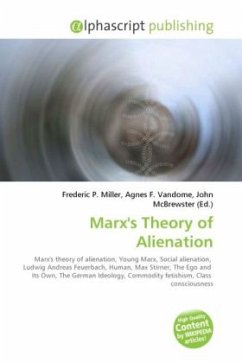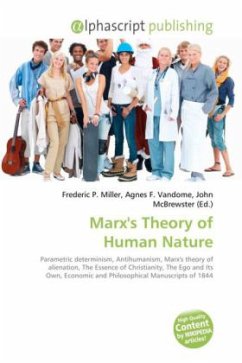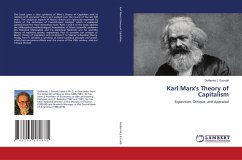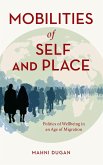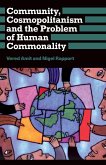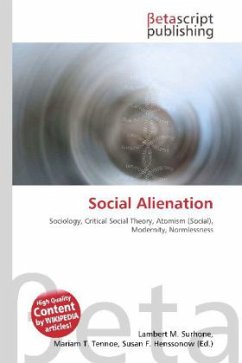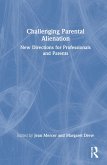Marx's theory of alienation (Entfremdung in German), as expressed in the writings of the young Karl Marx (in particular the Manuscripts of 1844), refers to the separation of things that naturally belong together, or to put antagonism between things that are properly in harmony. In the concept's most important use, it refers to the social alienation of people from aspects of their "human nature" (Gattungswesen, usually translated as 'species-essence' or 'species-being'). He believed that alienation is a systematic result of capitalism.Marx's theory relies on Feuerbach's The Essence of Christianity (1841), which argues that the idea of God has alienated the characteristics of the human being. Stirner would take the analysis further in The Ego and Its Own (1844), declaring that even 'humanity' is an alienating ideal for the individual, to which Marx and Engels responded in The German Ideology (1845).
Bitte wählen Sie Ihr Anliegen aus.
Rechnungen
Retourenschein anfordern
Bestellstatus
Storno

